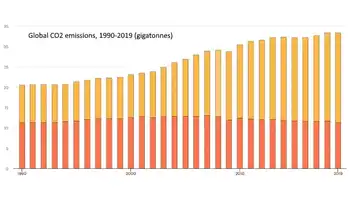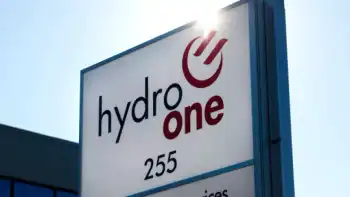Congressman calls for refunds from co-ops
By The Tennessean
Substation Relay Protection Training
Our customized live online or in‑person group training can be delivered to your staff at your location.

- Live Online
- 12 hours Instructor-led
- Group Training Available
Cooper said the TVA is conducting an internal study to be completed next month of its role as a regulator of cooperatives, and he is urging the TVA to make changes that will lead to refunds for cooperative members.
He said that the average individual ratepayer owns about $1,824 worth of his or her local electric cooperative, and that many cooperatives could afford to refund 10 percent to 30 percent of that to members.
"I just think that's a fundamental injustice,'' Cooper said. "No one knows they have nearly $2,000 of their own money in these cooperatives."
The largest cooperative in this area is Middle Tennessee Electric Membership Corp., which serves parts of Rutherford, Williamson, Wilson and Cannon counties.
Cooper has been calling for refunds from Tennessee cooperatives for more than four years.
The conflict escalated last month when the head of the national cooperative organization accused him during a congressional hearing of accessing the organization's restricted Web site to obtain internal documents.
Cooper said he obtained a password from a "whistle-blower" to get access to the National Rural Electric Cooperative Association's Web site, but said he did nothing wrong. He called the group's complaint "completely ridiculous."
Cooper said he was writing a letter to each of the board members of the TVA to get them to change contract language that forbids cooperatives from refunding money to ratepayers.
The congressman said the electric cooperatives have not lowered rates in at least 20 years. Cooperatives normally return some money to ratepayers in the form of refunds, but TVA contracts forbid cooperatives that get power from TVA from doing so.
A spokesman for TVA, John Moulton, said the policy against refunds has helped keep electric rates low for years. The average 8.15 cents per kilowatt-hour charged by cooperatives in the valley is 14 percent lower than cooperatives nationally and 21 percent lower than for all electric utilities on average, he said.
"That's evidence for us that this approach is beneficial to the cooperative members and consumers," Moulton said.
Tom Purkey, executive vice president and general manager of the Tennessee Electric Cooperative Association, said sending refunds would mean higher rates overall.
"They don't put that in the bank,'' Purkey said of the co-ops. He said the money is spent on improving infrastructure such as transmission wires.
Moulton confirmed TVA is in the midst of an internal study of cooperative finances but said he didn't know whether the issue would come up at a scheduled board meeting in Knoxville on August 20.











